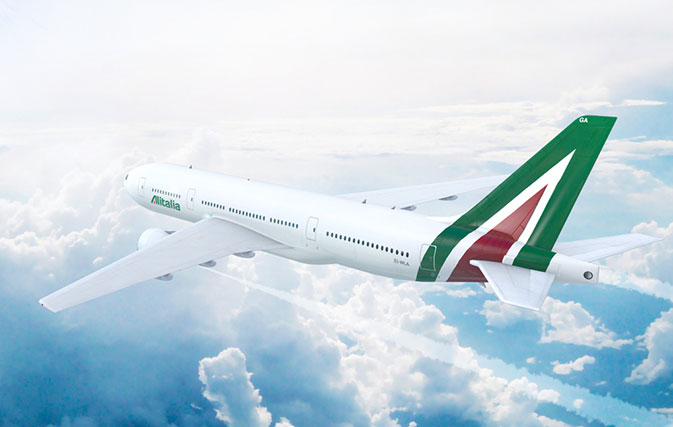MILAN — The Italian government’s relaunch of the struggling Alitalia airline includes plans to take a 15% share and the inclusion of the state railway company as a strategic partner, says Economic Development Minister Luigi Di Maio.
The long-awaited details were revealed ahead of meeting with Alitalia union leaders and as the government awaits an Oct. 31 deadline for binding offers from other companies, a process that had been launched by the previous government.
It remained unclear how the government’s new shareholder structure would affect potential bidders’ view of Alitalia, which has long suffered from competition with low-cost carriers without being able to successfully relaunch on more lucrative long-haul routes. But officials in Premier Giuseppe Conte’s office said the government wanted to re-establish Alitalia as Italy’s flagship carrier, giving it preferential rights, the news agency ANSA reported.
Di Maio, whose 5-Star Movement made Alitalia’s future a campaign theme, insisted in an interview published Friday by the daily il Sole 24 Ore that plans for the government to take a stake would not raise objections from European Union regulators.
“We are considering a threshold of government participation that is not so far off from other European experiences,” Di Maio told the paper, citing the French government’s holding in Air France.
Di Maio said that a partnership with state-owned national railway, Ferrovie dello Stato, would allow synergies, like the possibility of integrating a train ticket with airfare for tourists.
“Not only, Alitalia could concentrate much more on long-range flights, without overloading short- and medium-range national stretches,” he said, adding that the new organization would have room for jobs for young people in tourist-related services.
Union leaders who met with Di Maio on Friday said they welcomed the change of direction away from privatization and toward more government involvement.
Francesco Alfonsi of the UGL air transport union said Di Maio’s position “confirms the strategic importance of Alitalia.”
Di Maio refused to comment on reports that China Eastern and Delta Airlines were among the possible bidders, nor would he say whether Lufthansa, EasyJet and Wizz – which had made offers to the previous government in an earlier phase – were still interested.
Airline analyst Gregory Alegi warned that the increased government participation seemed to be a return to more protectionist policies. The government may find itself in conflict with the EU if it takes a shareholding at a preferential price. And while Alitalia has been largely performing well, it lacks mostly in longer-range flights that potential partners would have a difficult time sharing.
“Any industrial partner would be very wary of joining an airline at a time when the other shareholder is an activist or interventionist government,” he said.
